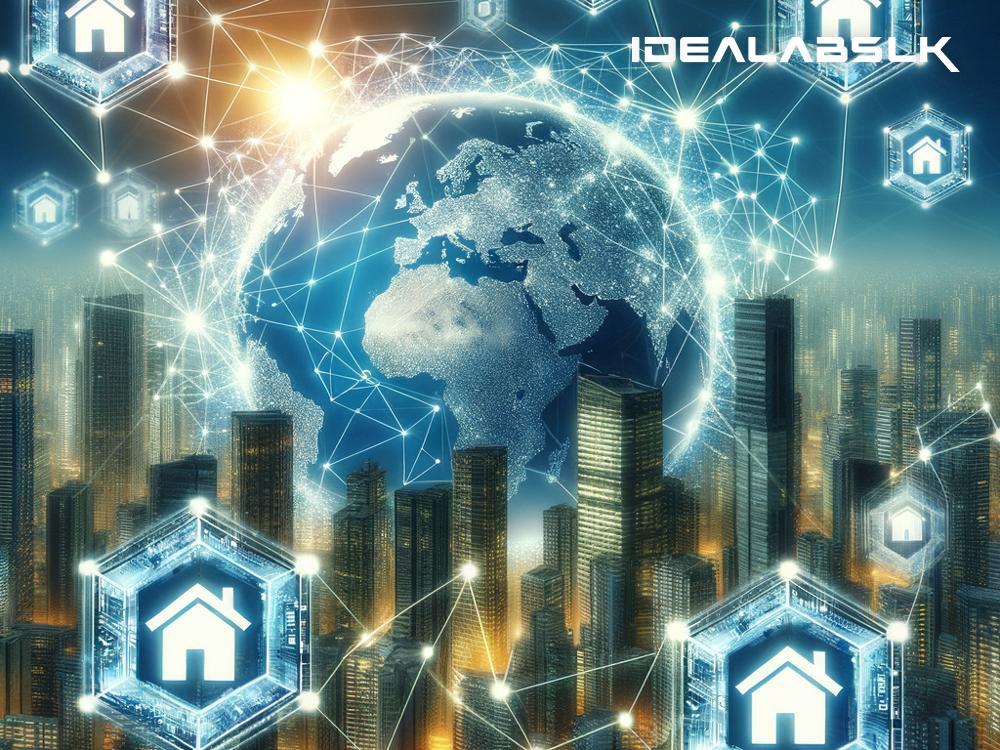Unlocking Real Estate Investing: The Power of Blockchain for Tokenization and Fractional Ownership
In the rapidly evolving world of real estate investment, technology is unlocking potentials that were once unimaginable. Among these groundbreaking innovations, blockchain stands out, particularly for its applications in real estate tokenization and fractional ownership. If you're scratching your head wondering what these terms mean and how blockchain is revolutionizing the real estate market, you're not alone. This blog post aims to demystify these concepts in simple English, so let's dive in.
What Is Blockchain?
Before we get into the nitty-gritty of real estate tokenization and fractional ownership, let's quickly refresh our understanding of blockchain. Imagine a digital ledger that is completely transparent and tamper-proof, where each transaction is recorded in a way that cannot be altered or deleted. This ledger is not stored in one central location but instead is distributed across a network of computers. This system not only enhances security but also ensures that every transaction is verifiable by everyone in the network. Originally devised for digital currencies, like Bitcoin, blockchain technology has found applications in various fields, real estate being one of the most promising.
The Traditional Real Estate Investment Landscape
Historically, investing in real estate has been seen as a venture reserved for the well-heeled due to its high entry barriers. Purchasing a property outright requires significant capital, making it a distant dream for many small investors. Furthermore, the process of buying, selling, and managing real estate is often riddled with paperwork, bureaucracy, and inefficiencies, making it less attractive to potential investors.
Enter Blockchain: A Game Changer for Real Estate
Blockchain technology is poised to disrupt the traditional real estate investment model through two key innovations: tokenization and fractional ownership.
Real Estate Tokenization
Tokenization refers to the process of converting rights to a real estate asset into a digital token on the blockchain. This token represents a share of the underlying asset, similar to how a stock represents a share of a company. Real estate assets, be it residential buildings, commercial spaces, or undeveloped land, can be tokenized and divided into multiple tokens, making it easier to buy, sell, and trade shares of a property digitally with speed and without cumbersome paperwork.
Fractional Ownership Made Easy
Fractional ownership, as the term suggests, allows multiple investors to own a share of a property, thereby spreading the cost among them. While the concept of fractional ownership isn’t new, blockchain technology simplifies the process exponentially. Through tokenization, a property can be divided into as many tokens as desired, lowering the investment threshold. This means that investors can now own a fraction of a property with much smaller amounts of money, opening up the real estate market to a broader audience.
The Benefits Unlocked
The integration of blockchain into real estate investments offers several compelling advantages:
- Democratization of Real Estate Investment: By lowering entry barriers and enabling fractional ownership, a wider pool of investors can now participate in the real estate market, democratizing property ownership.
- Increased Liquidity: Real estate is traditionally considered an illiquid asset since it takes time to sell. Tokenization facilitates easy transferability of property shares, enhancing market liquidity.
- Transparency and Security: Blockchain’s inherent characteristics ensure that every transaction is transparent, secure, and immutable, minimizing the risk of fraud and errors.
- Efficiency and Reduced Costs: By streamlining transactions and reducing the need for intermediaries, blockchain can significantly cut down on fees and processing times associated with real estate transactions.
Looking Ahead
The potentials of blockchain for revolutionizing real estate investment are immense, yet it's still a burgeoning field facing regulatory, technical, and market acceptance challenges. As these hurdles are gradually overcome, we can anticipate a more inclusive, efficient, and transparent real estate market.
In conclusion, blockchain holds the promise to not just transform how we invest in real estate but also to make property ownership accessible to millions who were previously sidelined. This technology is paving the way for a future where investing in real estate is as simple and straightforward as buying stocks online, heralding a new era for investors around the globe. As we move forward, one thing is clear: the intersection of blockchain and real estate is an exciting frontier worth paying attention to.

